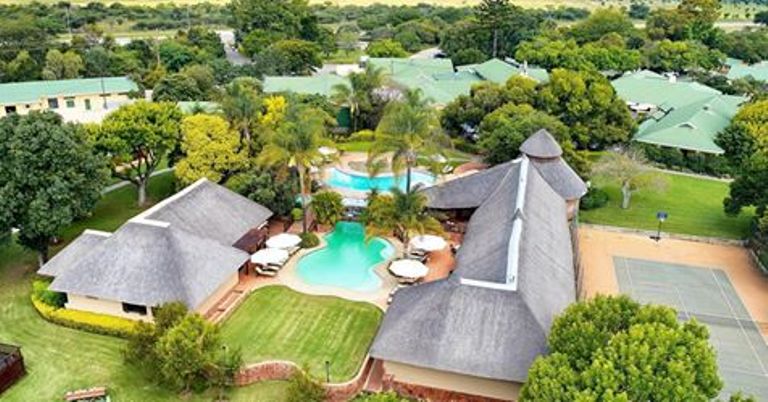
Repatriated South Africans May Apply to Self-Isolate; and Covid-19 Isolation Period Reduced for All
People returning to South Africa from abroad may now apply to self-isolate for a fixed period rather than staying in quarantine facilities provided by the state, according to new regulations published in the Government Gazette. AfriForum, which has campaigned for four months against compulsory quarantine in state facilities, welcomed the announcement but cautioned that the […]

People returning to South Africa from abroad may now apply to self-isolate for a fixed period rather than staying in quarantine facilities provided by the state, according to new regulations published in the Government Gazette.
AfriForum, which has campaigned for four months against compulsory quarantine in state facilities, welcomed the announcement but cautioned that the regulations are strict.
The organisation’s Diaspora Liaison Manager, Sue-Ann de Wet, said that returning South Africans who wish to self-isolate, have to apply to the Director-General of Health for the necessary consent at least 72 hours before their journey begins.
Applications have to include proof of suitable premises for self-isolation, contact details during the isolation period and the person’s itinerary for the preceding 30 days. (As this regulation was only published yesterday, there is not yet any info available on exactly which email address to contact.)
De Wet emphasised that repatriates have to take note that consent for self-isolation is not guaranteed and that the conditions for self-isolation as set out in the regulations apply. “Permission is still subject to the discretion of the officials concerned. If consent for self-isolation is refused, the person will have to remain in a state facility at the state’s expense,” she said.
According to De Wet, people who are currently in quarantine in state facilities, or will start their return journey to South Africa in less than 72 hours, have to be patient while the regulations and the process of the release of people currently in quarantine are communicated to all the facilities.
“The facilities and individuals’ experience of compulsory quarantine have been very diverse. In some cases facilities did not meet the requirements at all, while in some cases personal circumstances made it difficult for people to be confined in an unfamiliar environment for many days. AfriForum therefore welcomes the department’s adjustment of the regulations. We are all the more pleased that we opposed the quarantine measure in court,” De Wet adds.
“The new regulations are a victory for the rights of repatriated South Africans, but also leave them with the obligation to act responsibly. AfriForum calls on everyone to adhere strictly to all requirements in order to ensure that no-one’s safety will be jeopardised due to the fact that people can now self-isolate.”
Government reduces COVID-19 isolation period
South Africa has also revised the recommended isolation period for patients who have tested positive for COVID-19, from 14 to 10 days, Health Minister Zweli Mkhize announced.
The Minister said the recommendation to reduce the number of days in isolation is based on evidence that most patients with a mild COVID-19 infection continue to shed the virus from their upper airways for approximately seven to 12 days.
“Furthermore, the presence of detectable virus when testing does not necessarily imply infectiousness. It has been proven that in mild cases, virus cultures are generally only positive for 8-9 days after symptom onset,” said the Minister in a statement on Friday.
The Minister’s comments come as South Africa recorded 13 373 new COVID-19 cases bringing the cumulative total to 337 594 on Friday.
The country also reported a further 135 COVID-19 related deaths.
“The duration of infectiousness in patients with severe disease (i.e. requiring admission due to clinical instability) is less well established. In general, patients with severe disease may continue to shed [the] virus at higher levels for longer periods than patients with mild disease.”
To provide a buffer, it is recommended that such patients be de-isolated 10 days after clinical stability has been achieved, rather than 10 days after symptom onset.
“To illustrate this in simple terms, if a patient was admitted and placed on oxygen, we advise that when they oxygen supplementation is discontinued, the patient must remain in isolation for another 10 days. This continued isolation provides clinical comfort that the patient is no longer infectious.”
The Minister advised that asymptomatic patients must remain in isolation for a period of 10 days following the date of their positive results.
“I must mention that these guidelines have been provided by the World Health Organization (WHO). The Ministerial Advisory Committee has also submitted an advisory in this regard. Their advisory proposed that the isolation period should be reduced to eight days.”
“After considering this advice and the guidelines by the WHO, the National Coronavirus Command Council, on recommendation by Health, resolved to adopt the WHO guidelines.”
The recommended isolation time is the period during which a patient is still considered infectious. This should be distinguished from the point at which a patient is medically well enough to return to work.
Some patients, especially those who have had severe disease, may require to be booked off sick for longer than the above isolation periods.
Minister Nxesi tests positive for COVID-19
Another South African minister has tested positive for the coronavirus. Employment and Labour Minister Thulas Nxesi tested positive for COVID-19 on Friday.
“This was the Minister’s fourth round of tests to be conducted since the outbreak of the virus, and the first to return positive,” said Minister in the Presidency Jackson Mthembu.
Minister Nxesi who remains in high spirits, is in self-isolation and will continue to work from home.
Sources: AfriForum, SAGovNews
